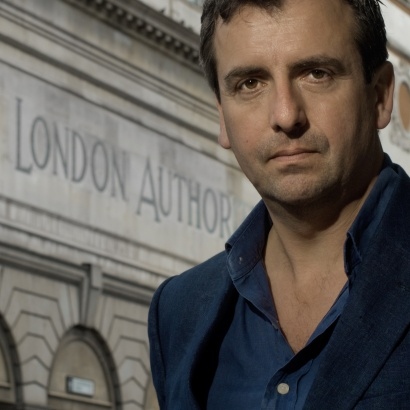 Chapter & Verse Blog
Chapter & Verse Blog
The Manchester Literature Festival Blog
Review: Shackleton's Man Goes South at Manchester Museum
Confession: Before I became a writer, I was a geographer. Yes, I know all the jokes about colouring in. In fact, the core of academic geography is usually global environmental change. From overpopulation to climatic warming, I’ve spent at least a decade reading scientific papers and political documents on what is the biggest issue of our times. An event like this one is both personally appealing and very important.
Tony White has written a fascinating book intertwining the scientific facts of climate change with a speculative fiction story set in a near future devastated by environmental degradation. We gathered in the haunting atmosphere of one of the Manchester Museum’s galleries, surrounded by single words – Weather, Disaster, Life – above displays of tiny wooden trees, exotic birds, plush dodos and, inexplicably, ceramic human teeth. Tony read to us under soft blue light the opening paragraphs of “Shackleton’s Man Goes South”, describing two trafficked women arriving in one of many camps set up to handle populations fleeing environmental disaster in the north.
Tony and Gregory Norminton then discussed the inspiration for the book. Tony has been writer in residence for the Science Museum for several years, and this work was inspired by his discovery of a short story by one of the members of Scott’s fateful expedition to the Antarctic about the discovery of sub-tropical fossils. George Clarke Simpson had written speculatively of the possibility of a warming world, tens of thousands of years into the future. Many scientists believe this warming will occur in the next hundred years. Some can see it happening now.
In writing, Tony tried to maintain a light, satirical tone. This must have been difficult, given the gravity of the subject. The intertwining of non-fiction and fiction is crucial to convey important ideas in a meaningful way. Humans respond more powerfully to story, and are unlikely to find anything truly meaningful in IPCC reports. Even the fictional strands of the novel come from the experience of humans already affected by climate change. He paraphrases William Gibson to say that environmental change is already here, but it’s distributed unevenly.
Not only is the book unusual in its approach to story-telling, but in its distribution. The Science Museum commissioned and published the novel, the first time this has been done in thirty years. The novel can be downloaded directly from a display in the Atmosphere Gallery. Visitors no longer have to remember to buy the book in the gift shop on the way out, but can download and email it to themselves or others for free in the gallery, and can even begin reading immediately. This unusual approach to sharing and spreading art and literature could easily work for other writers in residence. We left the event feeling moved and inspired, but also troubled. The future we face is uncertain, but fiction has a vital part to play in exploring how we cope with it.
Download the book here.
About the writer: Joely Black is a writer living in Manchester. She is obsessed with Dungeons and Dragons and swords. Her short story, Painter X, will be published in the anthology Metastasis on October 15th. She alsowrites Five Empires, a fantasy series available through www.joelyblack.com.


